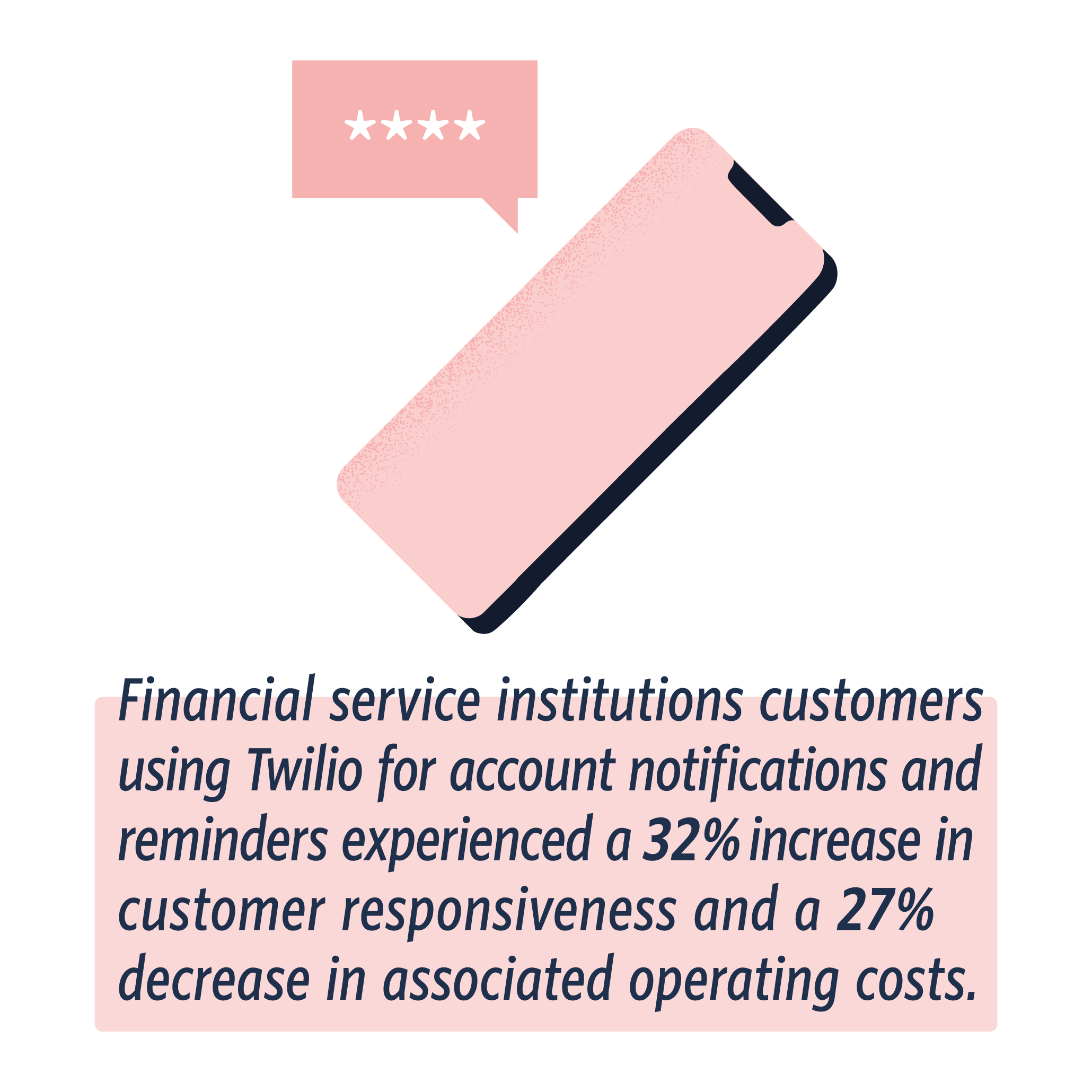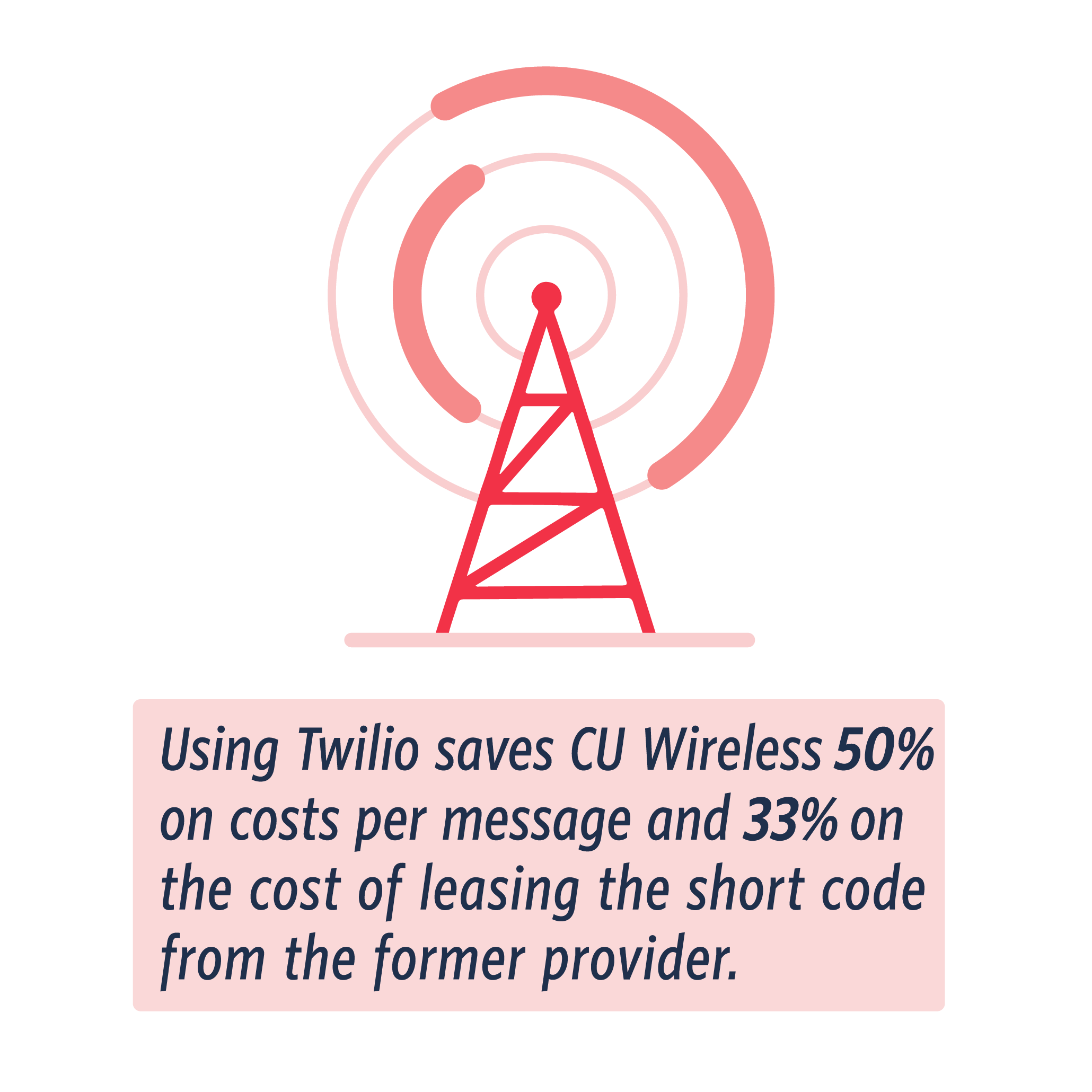Ensure compliant communications
Modernize existing communications infrastructure while being compliant
Engage with clients on their preferred channels, compliantly
The shift to remote work means compliant communications are more essential than ever for the financial service industry to preserve its high-touch service standards. Moving forward, continuity of service and experience alike includes time-sensitive alerts and notifications, and real-time video conferencing in lieu of in-person appointments. Financial services companies are subject to regulations that require them to monitor, archive, and store all client communications—more stringent regulations in comparison to other industries. Subsequently, they have more complex systems and protocols in place to stay compliant. Global telco regulations and compliance are complex and can seem overwhelming.
The power of programmability
Twilio’s APIs allow for easy integration into existing systems to modernize existing communications infrastructure while being compliant. Further, we’ve compiled regulatory and compliance information to help ensure you’re communicating effectively and compliantly around the world. Financial services companies can partner with Twilio to advise on how to navigate these regulations and integrate into existing protocols to ensure compliance.
-cd619f513d048fd47f49b85064c5aaa6d782099f.png?v=03242022192631)
Twilio’s programmable APIs empower financial services companies to proactively engage with customers with relevant and timely alerts and notifications to build long-lasting relationships while adhering to regulatory compliance.

Account balance alert
A customer receives a push notification with an account balance alert that they are nearing a zero balance. They tap on the notification, which automatically opens the mobile banking app on their smartphone. Before they can begin using the app, they must first enter a unique PIN, which is sent either to their phone via SMS using Twilio’s Authy or Verify API. From within the app, they can deposit more money into their account.
For customers who don’t participate in mobile banking, they can log in to their account from their laptop and opt-in to receive SMS alerts. By opting into alerts or texting certain keywords to a short code, members can proactively manage their accounts through a variety of ways: checking balances and recent transactions; monitoring suspicious activity; receiving notifications on large purchases and withdrawals; and receiving alerts on password changes.

Secure mobile banking
CU Wireless, a subsidiary of Maps Credit Union, provides technology services and financial apps to nearly four million credit union members around the U.S. Their banking app provides a secure and convenient way for members to access their accounts on the go. Members can check their account balances, transactions, and any loan details via SMS. CU Wireless moved its existing short code from its current provider to Twilio and integrated its banking app with Twilio’s Messaging API—in less than a week.